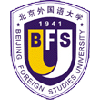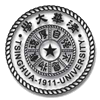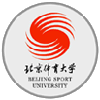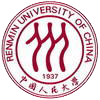University of International Relations
The Center for International Education (UIR-CIE) is a part of UIR, but the two are distinctive both in mission and location. The Center provides Chinese language training programs for international students who want to study in China. Its mission is now very similar to that of Beijing Language and Culture University (BLCU), being commissioned to teach Chinese language and culture to foreign students. UIR-CIE has a sub-campus outside of the main UIR campus, located near BLCU and other Chinese universities in Haidian District, Beijing. It is one of China's oldest institutions offering programs to overseas students. In recent years, CIE has attracted thousands of students from over 70 countries and regions to study Chinese language and culture in Beijing. Long-term courses last 12 weeks, one semester, or one year, with core courses scheduled for 8:30 am - 12:30 pm, Monday to Friday. Short-term programs last anywhere between two and 12 weeks, with classes again scheduled for 8:30 am - 12:30 pm, Monday to Friday. There are generally 10 - 15 international students in each class, so students have optimal learning conditions and maximum interaction with the teacher and each other. Start dates are quite flexible, since new classes are available almost every month. Intensive programs are offered which run at 30 hours per week in addition to the regular programs with 20 hours of lessons per week. All students are required to take the placement test in order to assign them to the appropriate class based on their test results. Students at the Center for International Education are divided into five proficiency levels as follows: level A (Beginner) is for those who have never studied Chinese before or who have learned Chinese phonetics and a few words, but cannot express themselves in complete sentences; level B (Elementary) students are required to know at least 800 Chinese characters and have a basic knowledge of systematic grammar and sentence structure; at level C (Intermediate) participants are required to know at least 1,500 Chinese characters and be able to construct basic paragraphs; students of level D (Advanced) ability are required to know at least 2,500 Chinese characters and should be able to express their opinions and discuss general topics with good intonation; and level E (Proficient) students are required to know at least 3,500 Chinese characters. Additionally they should be able to read the news from magazines and newspapers, listen to radio broadcasts and television, and express themselves systematically using appropriate expressions and language norms. In addition to core classes, students studying the one semester and one year programs can select a number of optional electives. These elective courses will improve students' listening and speaking skills while enriching their knowledge about Chinese culture. Courses offered include Chinese calligraphy, Chinese cooking lessons, tai chi, Chinese music, Chinese songs and many more. As well as its standard Chinese programs, CIE has developed a number of other programs specially focused for certain types of student. The Chinese Business Language Program focuses on the cultivation of Chinese language competence specifically for doing business in China. It has beginner, intermediate and advanced level classes, with programs ranging from as little as two weeks to full-year periods of study. Classes are from 8:30 am - 12:30 pm, Monday to Friday, and 1:30 pm - 5:30 pm, Monday to Friday. Key courses include: oral business Chinese, news listening comprehension, reading business news, writing Chinese characters, newspaper reading and business culture. A minimum knowledge of 800 Chinese characters is required for participation. The Mandarin Chinese Training Program is designed for students from Hong Kong, Macau and Taiwan. Courses last from two to eight weeks, with classes taking place from 8:30 am - 12:30 pm, Monday to Friday, and 1:30 pm - 5:30 pm, Monday - Friday. Key classes include: Mandarin conversation, newspaper reading, news listening and Chinese movies. Sometimes the university arranges summer camps for students aged 15-60 years old. Students who participate in the summer camp will be grouped into beginner, intermediate and advanced levels according to their Chinese language proficiency. Classes will be held in the morning for four hours, and there are optional elective courses in the afternoon such as calligraphy, Chinese cooking, tai chi and Chinese songs.
The university has admirable facilities and excellent faculty for education, with magnificent achievements in teaching and research. It enjoys high prestige in the field of international relations and provides experienced and talented teachers with great expertise in teaching. UIR emphasizes academic development by sponsoring teachers to go abroad to visit other schools or participate in international academic symposiums. Foreign professors and experts are invited every year to the university to give lectures or teach courses. UIR offers Mandarin Chinese programs for foreign students and focuses on students' communicative skills. There are over 30 expert native Chinese teachers in the Chinese language and culture department, who use effective teaching methods and have many years of experience in teaching Chinese as a foreign language to overseas students.
Library Founded in December 1949 and expanded in 1986, the university library covers an area of 5,925 square meters. The library's collection contains about one million volumes, including 260,000 Chinese and foreign language books, foreign language newspapers, 700 periodicals and 138 kinds of database, with more than 10,000 CD-ROMs and nearly 40,000 electronic collections. The library has a huge number of books on international relations, politics, economics and computer technology. Most foreign language books are available in English, Japanese, French and Russian. The library has eight computer rooms, two electronic reading rooms and four reading rooms with a capacity of 960 seats. Other library facilities include wireless internet access, copying facilities, documentary viewing and other services. In 2005, the library joined the Commonwealth College Library in cooperation with Tsinghua University, the National People's Congress and 31 libraries from 31 universities in China. The goal is to build a modern, first-class library providing great services to visitors and playing an important role in teaching and research. Recreation Facilities Within a five minutes walk from the campus, one can find a large gymnasium at Dongwangzhuang with complete facilities for physical exercise. Football pitches, basketball courts, volleyball courts, tennis courts, table tennis tables, billiards tables and bowling facilities can all be found inside Beijing Language and Culture University (BLCU), just a ten-minute walk west of campus. Laundry In the international students' dormitories, washing machines are provided on each floor, which can be used with magnetic cards purchased on campus. Within five minutes walking distance, there is a laundry shop at Dongwangzhuang which offers dry cleaning services. Money & Banking Banks are conveniently located nearby the university. Walk five minutes to the west and find the Bank of China, with two ATMs inside. The Industrial and Commercial Bank of China can be found on the same road. All ATMs are available 24 hours a day. All foreign currencies are accepted and students can open foreign exchange accounts or foreign banknote accounts. Medical Care There is no medical clinic on campus. But students can visit International SOS, a world leading provider of medical assistance and comprehensive medical services for the whole family, including dentistry, counseling, physiotherapy, occupational therapy, nutrition and TCM (traditional Chinese medicine). A 24-hour emergency ambulance service is available, and members have access to around-the-clock telephone consultations and evacuations from anywhere in China. Highly-trained expatriate and overseas-trained Chinese GPs provide services in English, Chinese, French, Spanish and many other languages. Well-stocked pharmacy provides Western medication and TCM ingredients. International SOS Food & Groceries A short walk from campus will lead you to Wudaokou, home to groovy hangouts like caf¨¦-bar Lush, caf¨¦-bakery Sculpting in Time, fashion boutiques and bookstores. The neighborhood is also home to Little Korea, with its many Korean eateries, bars and karaoke bars, Japanese restaurants, McDonalds, Kentucky Fried Chicken and the popular apartment complex Dongwangzhuang where many students live. The Carrefour hypermarket is 15 minutes away by taxi. Postal Services A post office can be found 20 minutes walk south of the campus. All postal needs, such as sending and receiving mail and parcels from around the world, can be satisfied here. Also on offer are post boxes, postage, packaging supplies and postcards. Inside the post office, there is a small music shop on the first floor and a bookstore on the second floor.
Accommodation options on campus come in two basic forms: single rooms and double rooms. The university offers "hotel-style" dorms, the best of which are the single ensuite bedrooms. All dorms have one or two single beds, basic furniture, telephones, TVs, refrigerators, air conditioning and a central heating system for the winter. Internet connection (ADSL) is also available upon request, costing RMB 150 per month.
From the airport to the university: 60 minutes by taxi From the train station to the university: 50 minutes by taxi |

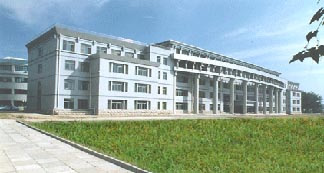 The University of International Relations (UIR) is one of the key universities under the administration of the Chinese Ministry of Education. It is well-known for its research and teaching in the fields of international relations, international affairs and international issues. Located in Beijing's Zhongguancun hi-tech development zone, the university covers an area of 13.2 hectares. The university is close to a number of beautiful spots, being adjacent to the world-famous imperial gardens of the Summer Palace, with Fragrant Hills to the west, and the Old Summer Palace (Yuanmingyuan) nearby to the east. Many other renowned universities are also found in UIR's surrounding area.
The University of International Relations (UIR) is one of the key universities under the administration of the Chinese Ministry of Education. It is well-known for its research and teaching in the fields of international relations, international affairs and international issues. Located in Beijing's Zhongguancun hi-tech development zone, the university covers an area of 13.2 hectares. The university is close to a number of beautiful spots, being adjacent to the world-famous imperial gardens of the Summer Palace, with Fragrant Hills to the west, and the Old Summer Palace (Yuanmingyuan) nearby to the east. Many other renowned universities are also found in UIR's surrounding area. Established in 1949, the university has developed from a school for training professionals in international affairs into a famous multidisciplinary university. UIR boasts degrees in a variety of disciplines such as foreign languages, science of law, management science, information technology and communication engineering, with international relations remaining the predominant discipline. Many UIR alumni work for government institutions in China and deal with international affairs. UIR offers degree and non-degree training programs for both Chinese and international students.
Established in 1949, the university has developed from a school for training professionals in international affairs into a famous multidisciplinary university. UIR boasts degrees in a variety of disciplines such as foreign languages, science of law, management science, information technology and communication engineering, with international relations remaining the predominant discipline. Many UIR alumni work for government institutions in China and deal with international affairs. UIR offers degree and non-degree training programs for both Chinese and international students.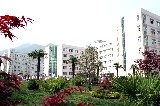 As well as providing education and implementing further educational reforms in China, the university is focusing on maintaining its distinctive characteristics, developing its strengths and enlarging its enrollment to prepare excellent graduates for international affairs, with quality of teaching and all-round development of the students as the twin pillars of its success.
As well as providing education and implementing further educational reforms in China, the university is focusing on maintaining its distinctive characteristics, developing its strengths and enlarging its enrollment to prepare excellent graduates for international affairs, with quality of teaching and all-round development of the students as the twin pillars of its success.